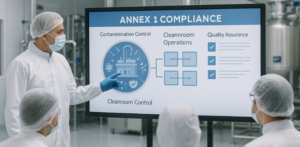GMP (Good Manufacturing Practice)
Definition
Good Manufacturing Practice (GMP) refers to a system of regulations, codes, and guidelines for the manufacture of pharmaceutical and food products. GMP ensures that products are consistently produced and controlled according to quality standards appropriate for their intended use. The term is often used interchangeably with cGMP, where the ‘c’ stands for ‘current’, emphasizing the need for companies to use up-to-date technologies and systems.
Detailed Explanation
GMP is a cornerstone of pharmaceutical quality assurance. It ensures that medicines are safe, effective, and of high quality. Regulatory agencies such as the U.S. Food and Drug Administration (FDA), the European Medicines Agency (EMA), and the World Health Organization (WHO) enforce GMP guidelines to protect public health.
Purpose and Importance of GMP
The primary purpose of GMP is to minimize the risks involved in pharmaceutical production that cannot be eliminated through testing the final product. These risks include cross-contamination, mislabeling, and adulteration. GMP provides a framework that covers all aspects of production, from raw materials and premises to staff training and hygiene.
Key Principles of GMP
- Quality Management: A comprehensive system for ensuring product quality throughout the manufacturing lifecycle.
- Sanitation and Hygiene: Cleanliness of personnel, equipment, and facilities is critical to prevent contamination.
- Controlled Manufacturing Process: All processes are clearly defined, validated, and controlled.
- Documentation: Accurate and traceable records ensure accountability and reproducibility.
- Personnel Training: Staff must be adequately trained and qualified for their responsibilities.
- Quality Control (QC): Testing of raw materials, in-process materials, and finished products ensures compliance with specifications.
What is cGMP?
cGMP stands for “current Good Manufacturing Practice”. The addition of “current” implies that companies must continuously update their systems and technologies to comply with the latest GMP regulations. This is critical in an industry where technology and quality expectations evolve rapidly.
Examples of GMP in Practice
- Pharmaceutical Manufacturing: Ensuring that each batch of medication is produced under strict quality control measures, including temperature and humidity monitoring, sterile environments, and validated processes.
- Biologics Production: Biologics, such as vaccines and monoclonal antibodies, require stringent GMP practices due to their complexity and sensitivity.
- Medical Devices: GMP principles also apply to the manufacturing of medical devices, ensuring that they meet safety and performance requirements.
Global GMP Regulatory Bodies
- FDA (USA): Enforces GMP regulations under Title 21 CFR Parts 210 and 211.
- EMA (EU): Oversees GMP compliance through the EudraLex Volume 4 guidelines.
- WHO: Provides international GMP guidelines for countries lacking their own regulatory infrastructure.
Consequences of Non-Compliance
Failure to comply with GMP regulations can have serious consequences, including:
- Product recalls
- Regulatory warnings or fines
- Loss of manufacturing license
- Damage to company reputation
Therefore, adherence to GMP is not only a regulatory requirement but also a critical component of a company’s commitment to public health and safety.


